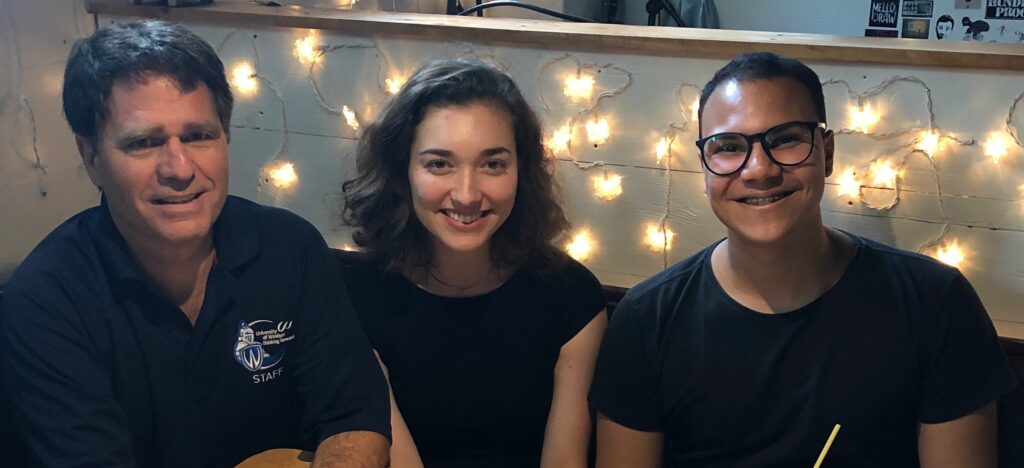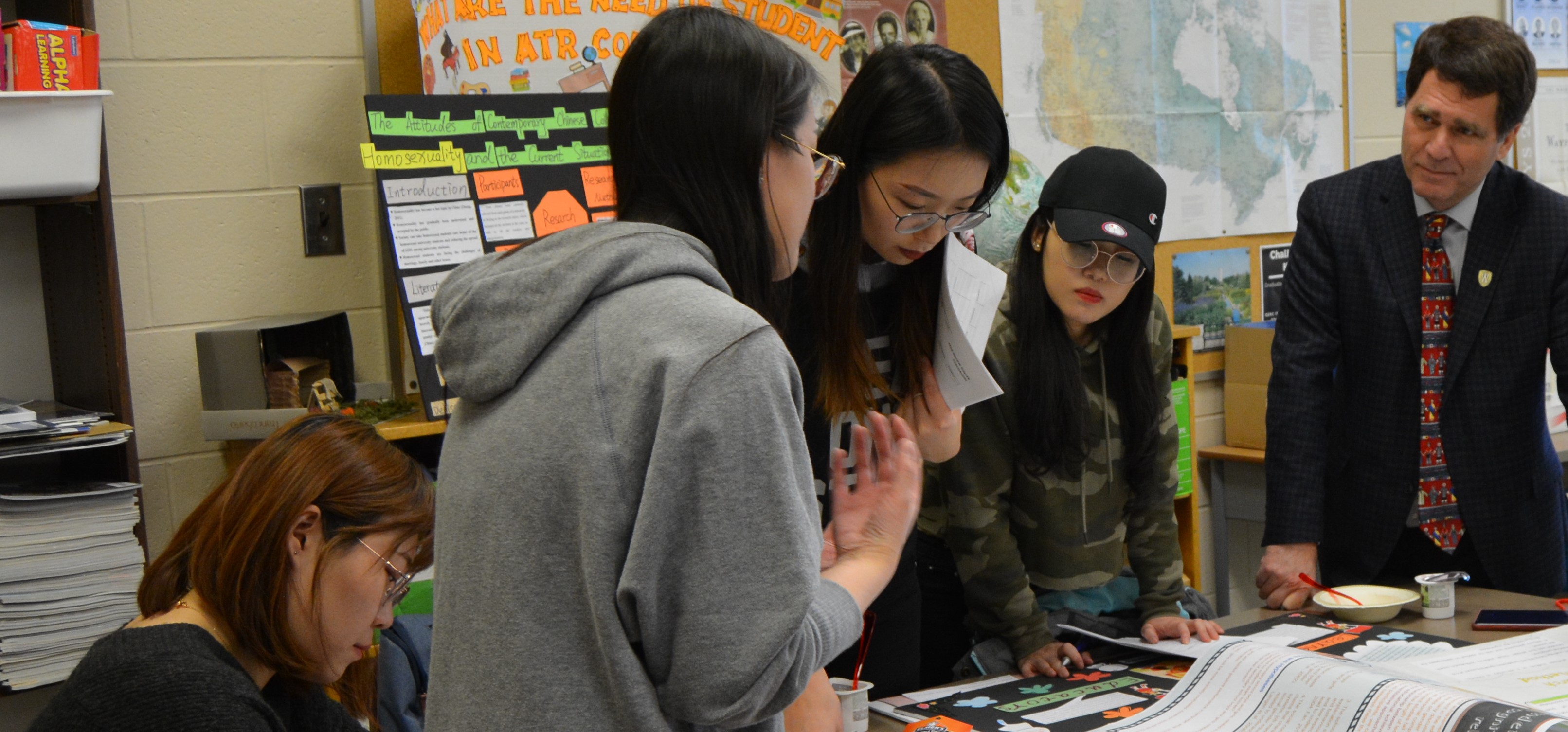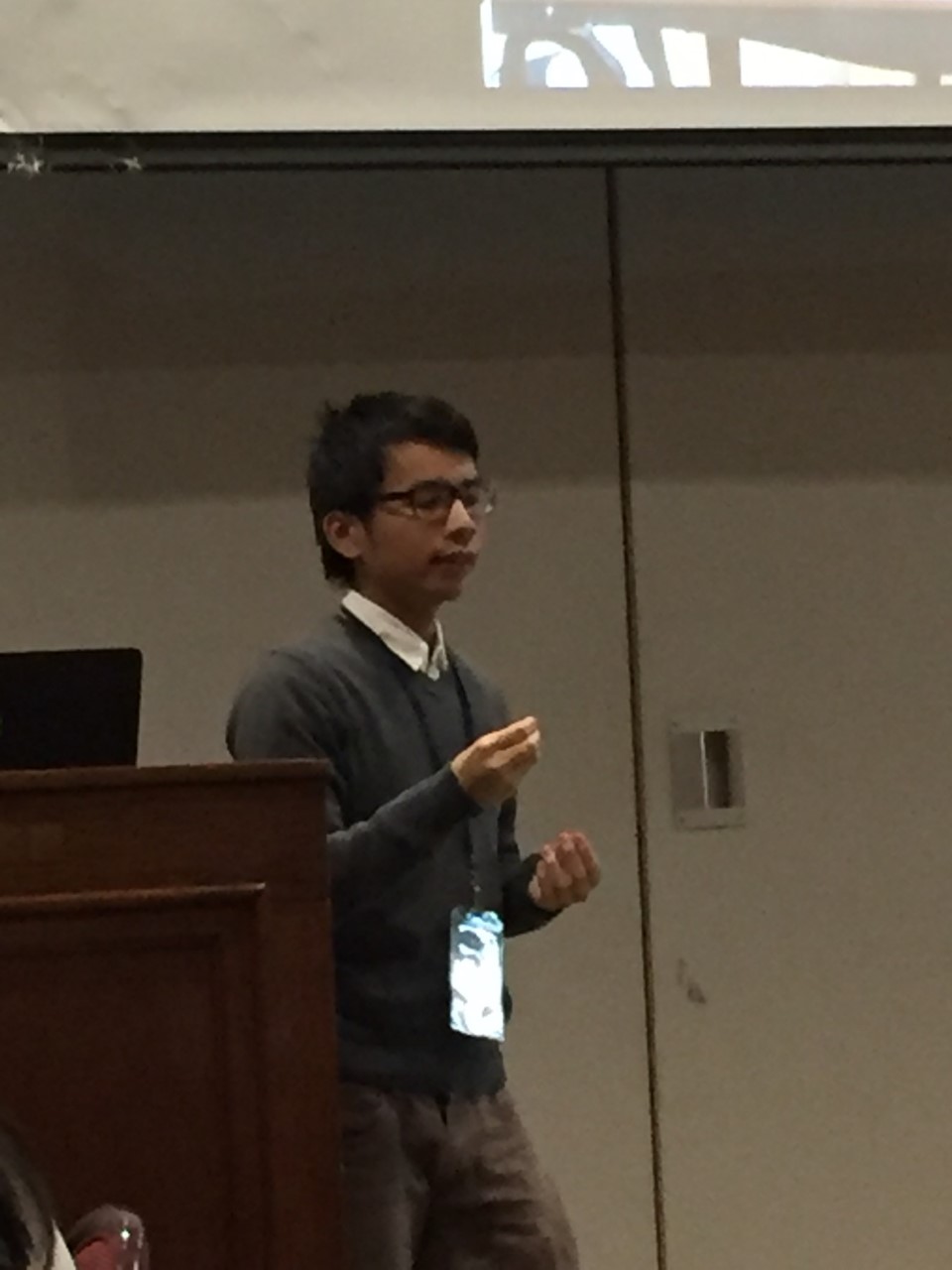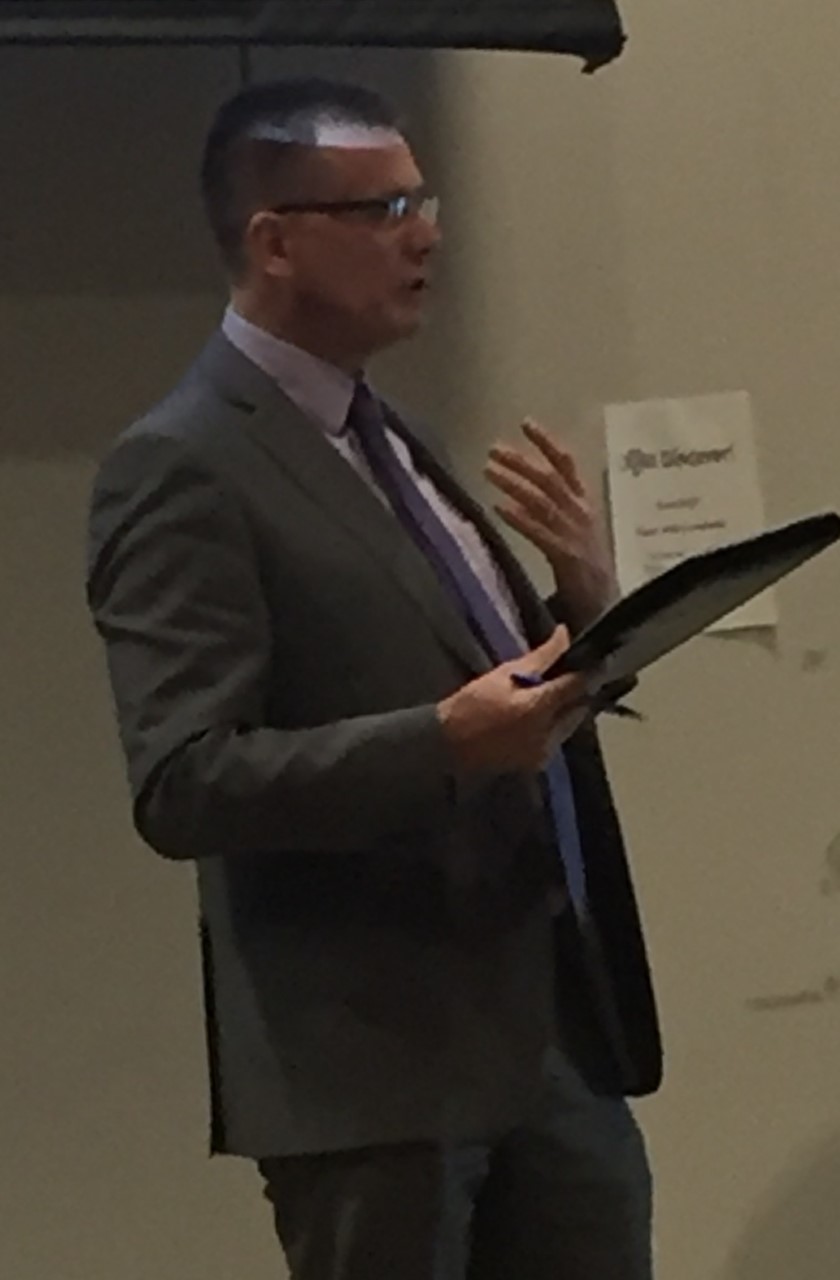Home » Undergraduate Student Research
Category Archives: Undergraduate Student Research
Taking My Breath Away!
Throughout the summer, it has been my pleasure to enjoy working with two wonderful undergraduate students, Miranda Pecoraro and Renan Paulino. Each contributed in meaningful ways to our ongoing research projects that are examining student views on the promising practices for teaching linguistically and culturally diverse post-secondary international students.
Miranda Pecoraro is a third-year Social Work student from Windsor, Ontario who is in our Outstanding Scholars program. She has been working with me for the past three semesters. The Outstanding Scholars program “provides an exceptional and supportive undergraduate learning experience for high-achieving students, emphasizing depth and breadth of research-based academic inquiry, strong and ongoing faculty/student mentorship, effective communication of research achievement, and achievement of external recognition of academic excellence.” Check out this video where Outstanding Scholar students explain the OS program in their own words.
Renan Paulino is a third-year Education student from Brazil who joined us as part of the Mitacs Globalink Research Internship program, which places undergraduate students at Canadian universities from a wide variety of countries (e.g., Brazil, China, European Union, Germany, India, Israel, Mexico, UK, US) to engage in faculty-led research projects. The focus of the Mitacs program is to create awareness of the leading research being done at Canadian universities and to enhance linkages between top international students and Canadian university faculty members. Here is a video on the Mitacs Canada Globalink Research Internship program. Interestingly, this is Renan’s second international exchange in Canada (the first was in St. Johns, Newfoundland while he was a high school exchange student), and he is considering returning for graduate education in the near future…hopefully with us!

Miranda Pecoraro and Renan Paulino
Undergraduate research is one of the “high-impact practices,” originally identified by George Kuh (2008), that can be life-changing. They “demand considerable time and effort, facilitate learning outside of the classroom, require meaningful interactions with faculty and students, encourage collaboration with diverse others, and provide frequent and substantial feedback.” Students who participate in high-impact practices experience a more complete university student experience. Those that engage in undergraduate research frequently develop strong relationships with student peers and faculty members.
Our students participated in writing projects that led to a peer-reviewed published book chapter and research poster, and a journal article in press on the topic of “Variability by Individual Student Characteristics of Student Satisfaction with Promising International Student Teaching Practices.” They also developed a workshop on this topic for our upcoming University of Windsor GATAcademy. Further, they are facilitating an international student-learning community project that is continuing to investigate the difference in student opinions between STEM (Science, Technology, Engineering, and Mathematics) and non-STEM students on this topic.
They really take my breath away!
I cannot wait to welcome more undergraduate students into our research group!
Clayton Smith
References:
Kuh, G. D. (2008). High-impact practices: What they are, who has access to them, and why they matter. Washington, DC: Association of American Colleges and Universities.
Smith, C., Zhou, G., Potter, M., & Wang, D. (2019). Connecting best practices for teaching linguistically and culturally diverse international students with international student satisfaction and student perceptions of learning. In James, W. B., & Cobonoglu, C. (Eds.), Advances in Global Education and Research Volume 3, (252-265). Sarasota, FL: Association of North America Higher Education International. https://scholar.uwindsor.ca/educationpub/24/
Smith, C., Zhou, G., Potter, M., & Wang, D. (2019). Connecting best practices for teaching linguistically and culturally diverse international students with international student satisfaction and student perceptions of learning. Poster presented at the Society for Teaching and Learning in Higher Education Conference, Winnipeg, MB.
Potluck, Posters, & Loads of Fun

For the past few semesters, I have ended my smaller classes with potluck food and beverage sharing, a poster fair, and a chance to end the semester with loads of fun. I thought I’d share a bit about this in case this may be something other teachers might want to try.
The students plan the potluck. I just ask that they try to mix it up a bit so we don’t get all chips and poutine! This year students brought food items in from their home culture, as well as what could readily be found in nearby bakeries and grocery stores. What is important is that everyone contribute. The added benefit is that there is almost always food left over, and this results in the sharing continuing even after class finishes. I see the potluck as a key outcome of the course. Students will engage with each other (and me!) around the potluck table in some wonderfully engaging ways.
The poster fair is a great match for any class in which a major project is completed. I have done it for my Research in Education Class, a first-year graduate level class in which students prepare a research proposal. Students in my Theories of Individual and Collective Learning, an undergraduate course in our Minor in Organizational Learning and Teaching, also prepare posters. During the poster fair, students listen to each other’s poster presentations and provide peer review at the end, including an opportunity to engage collectively in a topic of the individual students’ choice. It is a great reflective experience that provides students with a truly authentic learning experience.
The loads of fun part comes as we engage each other, take a class photo, and then assemble an end-of-class mind map on the class topic. Lots of moving around, wonderful smiles, and a chance to put the course into practice.
You might think this approach is best with one type of student or class. Actually, it works for undergraduate and graduate classes. Size matters, with the best results being when the students know each other. But my guess is it could also work in a larger class. Maybe I will try that next year!
Clayton Smith
Creating Undergraduate Student Research-based Learning Experiences

George Kuh (2008) tells us that there are 11 teaching practices that have high impact on student learning. These include: first-year experiences, common intellectual experiences, learning communities, writing-intensive courses, collaborative assignments and projects, undergraduate research, diversity/global learning, service learning/community-based learning, internships, capstone courses/projects, and ePortfolios. Students who benefit from these teaching practices “earn higher grades and retain, integrate, and transfer information at higher rates” (p. 14). Some of the common characteristics of these HIPs:
- Demand that students commit considerable time and effort to” purposeful tasks”;
- Demand they interact with faculty and peers about academic matters over extended periods of time;
- Increase the likelihood that students will experience diversity through contact with people who are different from themselves;
- Provide students with frequent feedback about their performance;
- Provide opportunities for students to see how what they are learning works in different settings, both on and off campus; and
- Provide life changing experiences for students
William Cronon (1999) captured the essence of HIPs when he wrote:
More than anything else, being an educated person means being able to see connections that allow one to make sense of the world and act within it in creative ways. Every one of the qualities I have described here–listening, reading, talking, writing, puzzle solving, truth seeking, seeing through other people’s eyes, leading, working in a community–is finally about connecting (p. 12).
Today I would like to focus on one of the HIPs, undergraduate research. Universities are increasingly providing research experiences for undergraduates that engages students with “actively contested questions, empirical observation, cutting-edge technologies, and the sense of excitement that comes from working to answer important questions” (Kuh, 2008, p. 10). This leads students to benefit from each of the HIP common characteristics noted above. For a long time, this educational activity was limited to graduate students. But now, we are seeing undergraduates also benefit from research as learning by “listening, reading, talking, writing, puzzle solving, truth seeking, seeing through other people’s eyes, leading, working in a community”; all of which results in them connecting to each other and the world in some very meaningful ways.

For many years, we have had a wonderful program at the University of Windsor, Outstanding Scholars, which sees undergraduate students engage with faculty members on important research projects outside of the classroom. Students are paid to work in a research placement for up to six semesters. During that time they have the opportunity to be mentored in their discipline, and to get to know faculty much better than they would in the classroom only. This semester I have had an opportunity to work with one of our scholars on a project involving supporting an international student learning community research project on finding the connection between student satisfaction and perceptions of learning with the promising teaching for teaching international students. Miranda Pecoraro has worked closely with graduate and undergraduate students, faculty members, and research staff as she developed enhanced collaboration, communication, and quantitative knowledge with regard to developing a research project. It has been a pleasure watching her challenge herself and grow both personally and professionally throughout the semester. I am especially pleased that she will be continuing with the project.
This week I had the pleasure of participating as a judge in the University of Windsor’s UWILLDiscover Conference. This is a conference that takes undergraduate research a step further by combining it with the research output of graduate students. At this year’s conference, we saw Faculty of Education undergraduates present on their experiences traveling to China as part of our Reciprocal Learning Program. There were posters presented on a range of topics where undergraduates, graduate students, and staff/faculty supervisors presented with undergraduate students. And we also saw separate but equally well developed presentations made throughout the four days of the conference by both undergraduate and graduate students. Added to all of this, the conference was managed by a large group of student volunteers working under the guidance of Dr. Phil Wernette.
Perhaps the next step is to find ways to combine in-class learning with research engagement in ways that remove the lines for student learning in between the classroom and the extracurriculum. If this interests you, drop me a comment. I would be interested in how you are creating dynamic research-based learning experiences for undergraduate students across the student experience.
Clayton Smith
References
Cronon, W. (1999). Only connect: The goals of a liberal education. Liberal Education, 85(1),
Kuh, G. (2008). High-impact educational practices: What they are, who has access to them, and why they matter. Washington, DC: Association of American Colleges and Universities.
Recent Comments